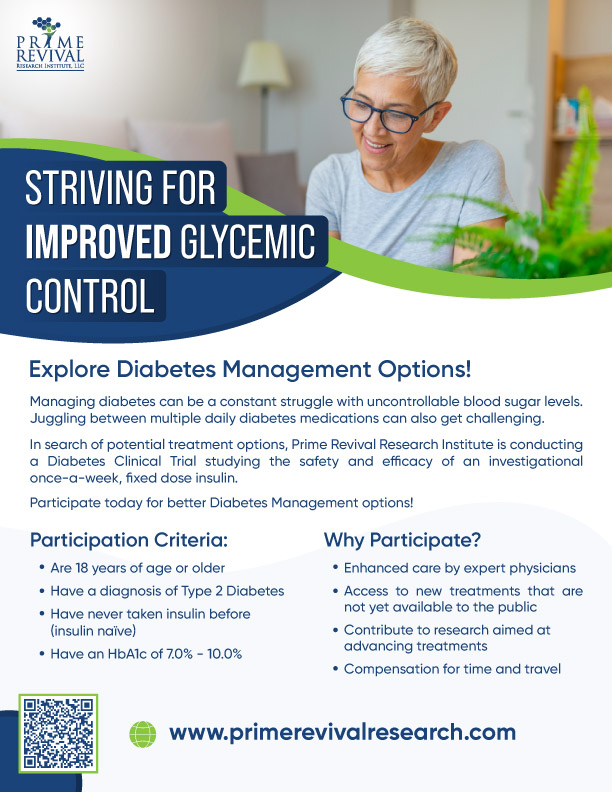Explore Type 2 Diabetes Clinical Trials (Insulin Naive Therapy) for Alternate Management Options!
Taking insulin daily might not be everyone’s cup of tea. We are working on a once-weekly long-acting dosage that offers a more convenient alternative to daily insulin. Your participation may help us achieve this.
According to the World Health Organization (WHO), around 442 million people have Type 2 Diabetes. It occurs when the pancreas is unable to produce enough insulin naturally. Without appropriate treatment, blood glucose levels rise and cause damage to the heart, kidneys, and eyes.
Oral antihyperglycemic medications are given initially. Over time, oral medications may not be enough to control blood glucose. Insulin therapy is initiated in insulin-naive patients.
Prime Revival Research Institute is conducting Type 2 Diabetes Clinical Trials to help insulin naive diabetics manage their blood glucose levels.
You may be able to participate if you:
- Are at least 18 years old
- Have been diagnosed with Type 2 Diabetes
- Have taken at least 1 medicine to treat your diabetes for the past 3 months
- Have not been prescribed insulin before
Your doctor will review additional study criteria with you and see if you qualify. If you qualify and decide to participate in the Type 2 Diabetes Clinical Trials, you will receive all study-related care.


